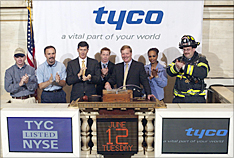 Boards need to help their companies grow. As Fred Steingraber and I note in our article, What Boards Need to Do to Remain Relevant, directors need to re-examine and even revise board committees and committee work to bring the level of attention that is required to better understand the companies they serve. While oversight of executive compensation has caused the greatest shareholder concern followed by too little attention to talent and succession management, boards have not paying enough attention to productivity, quality, growth and risk management—mechanisms by which companies renew their businesses, pursue sustainable growth and mitigate risk.
Boards need to help their companies grow. As Fred Steingraber and I note in our article, What Boards Need to Do to Remain Relevant, directors need to re-examine and even revise board committees and committee work to bring the level of attention that is required to better understand the companies they serve. While oversight of executive compensation has caused the greatest shareholder concern followed by too little attention to talent and succession management, boards have not paying enough attention to productivity, quality, growth and risk management—mechanisms by which companies renew their businesses, pursue sustainable growth and mitigate risk.
Directors, please turn to the New York Times Magazine of December 16 and read about Jump, a hybrid strategy firm focused on growth. Either charter a new committee to review organic growth targets and trends or add that to another committee’s responsibilities. Innovation is what will enhance a company’s and yes, even the country’s success. Directors who understand the broader developments in products and services, markets and channels, geography and relevant resource requirements can challenge and expand management’s thinking. This committee should oversee the due diligence related to acquisitions as well as post-merger audits. They would also be responsible for understanding and overseeing the targeted and actual growth in revenues from new products in the last three to five years.

